The success of reproductive cloning
In the last 20 years, reproductive cloning has gone from being science fiction to serious reality.
Beginning with the cloning of Dolly the Sheep at the University of Edinburgh in 1997, a whole host of animals have now been successfully cloned and grown to adulthood. The mammals that we have cloned now include a cat, various cows and bulls, deer, dogs, ferrets, goats, horses, tons of mice, pigs, rabbits, rats, a Rhesus monkey, sheep, a water buffalo, and a wolf.





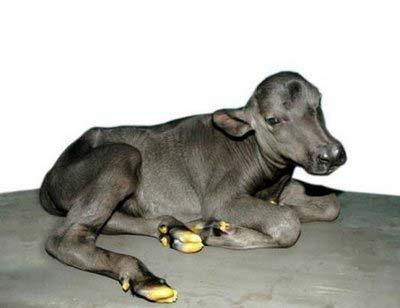
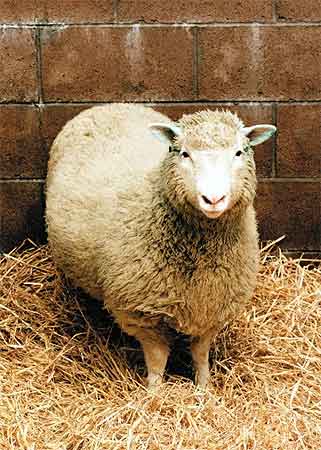
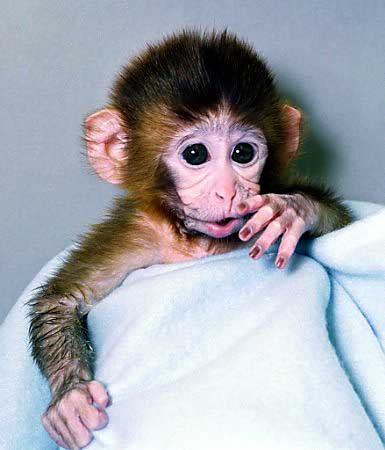

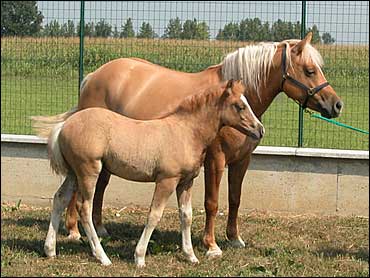
You may recall from the last lecture that at the core of reproductive cloning is a very simple idea, though one that is technically hard to achieve. You take a zygote and extract the nucleus, then take the nucleus of any other cell and pop it in.
The foreign nucleus is quickly reprogrammed by its new chemical environment to behave like the nucleus of an embryo. With a little encouragement (like a zap of electricity), it will begin to divide and can be placed in a surrogate womb. If all goes well, it will develop into a fetus and be born as a live clone.
What is a human clone?
First, let's talk about what a human clone is not. It is not like a photocopy, and is in no sense identical as an individual to its DNA donor. The science fiction movies simply have this part wrong.
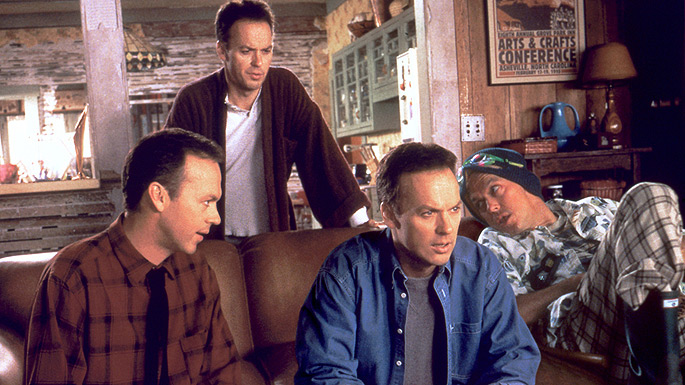
What is a reproductive clone like? Clones are similar to identical twins. They share the same DNA, but undergo completely different developments.
Are genetically identical individuals like identical twins also identical as people? Of course not. Identical twins are very different people. Now imagine you have two twins that grow up in totally different environments, or even in totally different decades. The difference will be even more pronounced. Human clones would be no more the same person than twins are, and probably less so in having grown up in different environments.
Why do I want one?
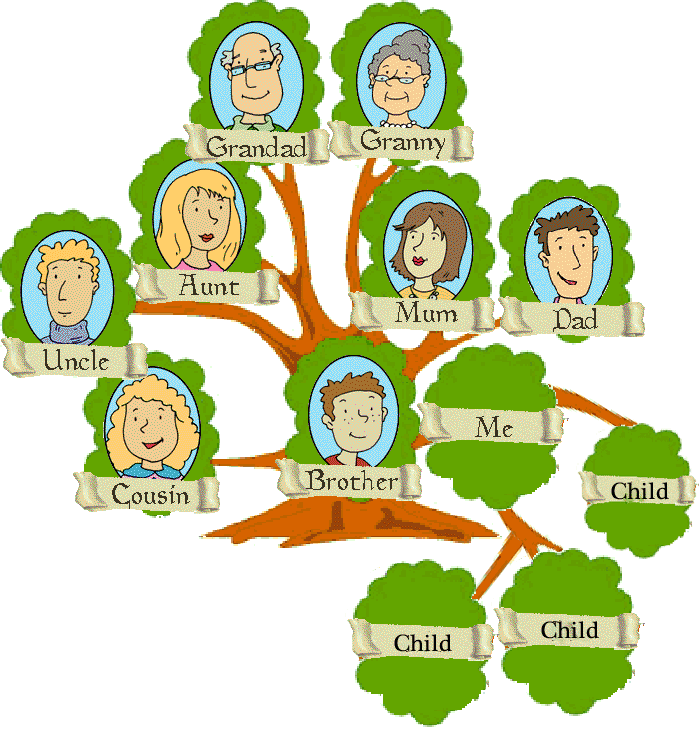 Did you feel a responsibility to carry on your family line? If so, you join many other humans in placing a high value on genetic descent, which is both cultural and emotional.
Did you feel a responsibility to carry on your family line? If so, you join many other humans in placing a high value on genetic descent, which is both cultural and emotional.
Although genetic descent has historically occurred through sexual reproduction, today there little to no physical requirement that it must always be this way. For many, this kind of reproduction might not be possible, or even desirable. In such cases, reproductive cloning offers an interesting but controversial alternative.
For example, same-sex couples, or even single parents may wish to have a genetic descendant, without having to accept chromosomes from a donor with no emotional connection to the family. With cloning, no donor is needed, except possibly for enucleated egg. You can produce genetic offspring with only your own genes in hand.
Or, you might have suffered the loss of a child, but kept a sample of the child's DNA. You might then wish you next child to be a clone of your recently deceased child. Of course the new child will be a different person, in the same way that a twin is a different person. But keeping the same genetic information mean something special to you.
Another reason someone might give to have a cloned child might be, why not? For example, we have preserved genetic information from Beethoven (his hair) and from Einstein (his brain). Why not raise a clone of Einstein, or Beethoven, or both?

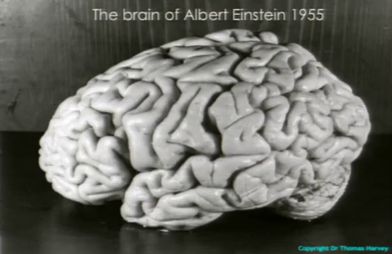
Of course, we've previously discussed how unregulated reproductive selection may lead to unexpected negative consequences. But suppose selection were regulated, so that only so many Beethoven and Einstein clones were allowed each year to maximize genetic variation, and so on. Is there any problem with this? Or, are we just culturally averse to change?
Ethical Barriers
After the cloning of Dolly the Sheep in 1997, US President Bill Clinton immediately set up a commission to determine the ethics of reproductive cloning. Their report cited "serious ethical questions, particularly with respect to the possible use of this technology to clone human embryos."
One common complaint when cloning was first achieved is the hubris objection, that non-traditional reproduction is like "playing God," and goes beyond what human beings are meant to do. Such objections often have religious motivations underlying them.

This is not particularly convincing from an ethical or policy perspective, since there is no agreed-upon sense in which humans have a "purpose" or other inherent quality that might prohibit us from human cloning.
However, the US Commission on the ethics of cloning cited a number of familiar ethical concerns:
US Commission Ethical Concerns
- individuality and autonomy
- family integrity
- treating children as objects
- safety
Curiously, it appears that their first concern rests on a fallacy that cloned humans are in some sense identical to their DNA. As we have seen, this is simply false. At worst, parents are sometimes guilty of diminishing the identity of twins, and might also do the same with clones. But this merely suggests more education is necessary, not that cloning should be banned.
The concern about family integrity basically argued that cloning had the potential to change how reproduction and genetic descend occurs in a fundamental way. It would moreover clearly rattle many long-standing cultural norms. But does this mean that it is wrong?
The third concern was that we'll start rampantly producing children just to use them out for parts, or to achieve some other "mere means."
But there remain questions about this concern as well. For example, there is the question whether careful regulation can easily fix the problem. There is also a question of whether treating children like a "mere means" is already apart of existing reproductive norms, which for centuries has included practices like farmers having as many children as possible in order to increase the number of farm hands.
Is banning cloning the best solution to any of these worries?
Physical barriers: Imprinted gene expression
The final concern of the US commission on the ethics of cloning was safety. It turns out that the issue of safety is more complicated.
MIT biologist Rudolf Jaenisch writes that, "for the creation of a child ("reproductive cloning"), there are overwhelming scientific reasons to oppose this practice" (Jaenisch 2004, pg.2787).
 He's worried about a problem with a certain type of gene called an imprinted gene. Here is the issue.
He's worried about a problem with a certain type of gene called an imprinted gene. Here is the issue.
The majority genes get expressed from both the chromosomes of both parents. These genes get reprogrammed and remixed in the early embryo, and give rise to most of our individual phenotypic traits. Most traces of what which parent the traits come from gets eliminated in this process.
However, there are also genes, called imprinted genes, for which which one parent gets suppressed, and only the allele from the other parent is expressed. The segment of DNA corresponding to an imprinted gene gets chemically "marked" as a sperm cell fertilizes an egg, and this marking determines whether Mom's side or Dad's side will be expressed.
Imprinted genes turn out to be very important for the correct development of a fetus. For example, a well-known genetic disease called Prader-Willi syndrome occurs when an individual is missing an imprinted gene that is supposed to be expressed by the father's side. It can occur either when the father's imprinted gene goes missing, or when the maternal side gets expressed instead.
Why is this a problem for cloning? Because clones are prone to the failed expression of imprinted genes.
In a sense, it's easy to see why. Imprinting is possible because a sperm cell and an egg cell are in special chemical environments that are distinct from one another. Normally, this distinction allows a particular gene to be chemically marked as "Dad" or "Mom."
But this is impossible with a cloned embryo. Both parent-sides are in the same chemical environment when the nucleus is transplanted into the egg. Since there is no chemical distinction, the appropriate environment is not available to allow genetic imprinting.
As a result, cloned embryos are much more susceptible to genetic diseases associated with failed imprinting.
A related problem is the problem of chromosome multiplicity in cloned humans. We need exactly one chromosome of each of the 23 types in order for normal development to occur. Multiplying or missing chromosomes can lead to various problems.
For example, an extra Chromosome 21 leads to Down's syndrome. An extra Chrosome 18 leads to Edward's syndrome.
But for environmental reasons similar to those discussed about, chromosome multiplicity is not as reliable in cloned embryos, and more often results in too many or too few chromosomes on a given site.
These biological arguments that reproductive cloning is not safe represent a much more serious object to the practice than many of the ethical objections above.
But do these problems represent a "fundamental biological deficiency" in cloned humans, as Jaenisch suggests? Or, do we simply lack the technology to ensure that imprinted genes are correctly expressedin the development of the embryo? An important part of the continuing debate about reproductive cloning will rest on how these questions get answered.